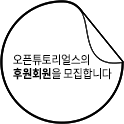Character Pointers and Functions
A string constant, written as
”I am a string”
is an array of characters. In the internal representation, the array is terminated with the null character '\0' so that programs can find the end. The length in storage is thus one more than the number of characters between the double quotes.
Perhaps the most common occurrence of string constants is as arguments to functions, as in
printf(”hello, world\n ”);
When a character string like this appears in a program, access to it is through a character pointer; printf receives a pointer to the beginning of the character array. That is, a string constant is accessed by a pointer to its first element.
String constants need not be function arguments. If pmessage is declared as
char *pmessage;
then the statement
pmessage = ”now is the time";
assigns to pmessage a pointer to the character array. This is not a string copy; only pointers are involved. C does not provide any operators for processing an entire string of characters as a unit.
There is an important difference between these definitions:
char amessage[] = ”now is the time ” ; /* an array */
char *pmessage = ”now is the time” ; I* a pointer */
amessage is an array, just big enough to hold the sequence of characters and ’\0’ that initializes it. Individual characters within the array may be changed but amessage will always refer to the same storage. On the other hand, pmessage is a pointer, initialized to point to a string constant; the pointer may subsequently be modified to point elsewhere, but the result is undefined if you try to modify the string contents.

We will illustrate more aspects of pointers and arrays by studying versions of two useful functions adapted from the standard library. The first function is strcpy (s , t), which copies the string t to the string s. It would be nice just to say s=t but this copies the pointer, not the characters. To copy the characters, we need a loop. The array version is first:
/* strcpy: copy t to s; array subscript version */
void strcpy(char *s, char *t)
{
int i;
i = 0;
while ((s[i) = t[i)) != '\O')
i++;
}
For contrast, here is a version of strcpy with pointers:
/* strcpy: copy t to s; pointer version 1 */
void strcpy(char *s, char *t)
{
while ((*s = *t) != ’\0’ ) {
s++;
t++;
}
}
Because arguments are passed by value, strcpy can use the parameters s and t in any way it pleases. Here they are conveniently initialized pointers, which are marched along the arrays a character at a time, until the '\0’ that terminates t has been copied to s. [참고 자료: https://denniskubes.com/2012/08/20/is-c-pass-by-value-or-reference/]
In practice, strcpy would not be written as we showed it above. Experienced C programmers would prefer
/* strcpy: copy t to s; pointer version 2 */
void strcpy(char *s, char *t)
{
while ( ( *s++ = *t++) I= ’\0’)
;
}
This moves the increment of s and t into the test part of the loop. The value of *t++ is the character that t pointed to before t was incremented; the postfix ++ doesn’t change t until after this character has been fetched. In the same way, the character is stored into the old s position before s is incremented. This character is also the value that is compared against '\0' to control the loop. The net effect is that characters are copied from t to s, up to and including the terminating '\0’.
As the final abbreviation, observe that a comparison against '\0’ is redundant, since the question is merely whether the expression is zero. So the function would likely be written as
/* strcpy: copy t tos; pointer version 3 */
void strcpy(char *s, char *t)
{
while (*s++ = *t++)
;
}
Although this may seem cryptic at first sight, the notational convenience is considerable, and the idiom should be mastered, because you will see it frequently in C programs.
[The C Programming Language pp.104-106]


